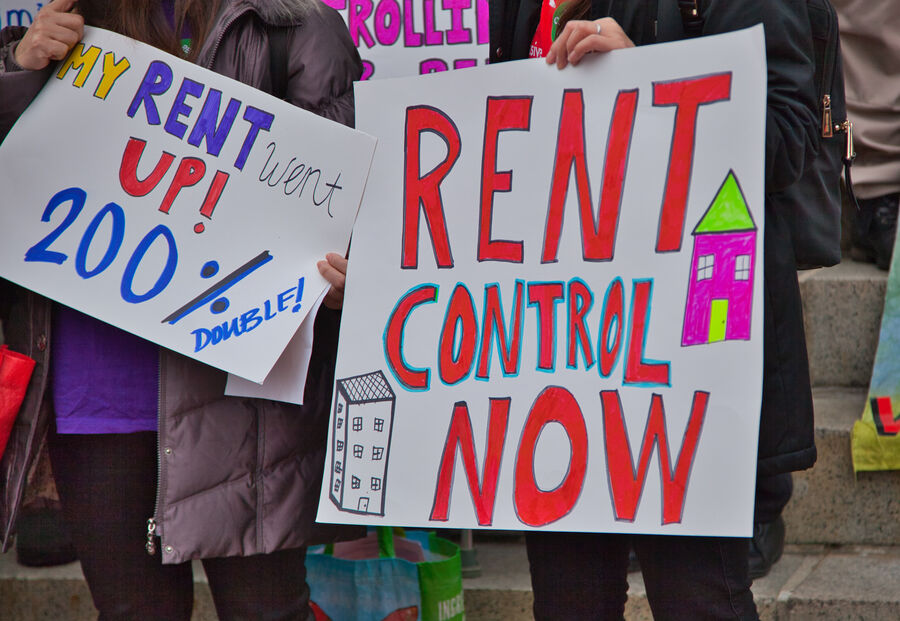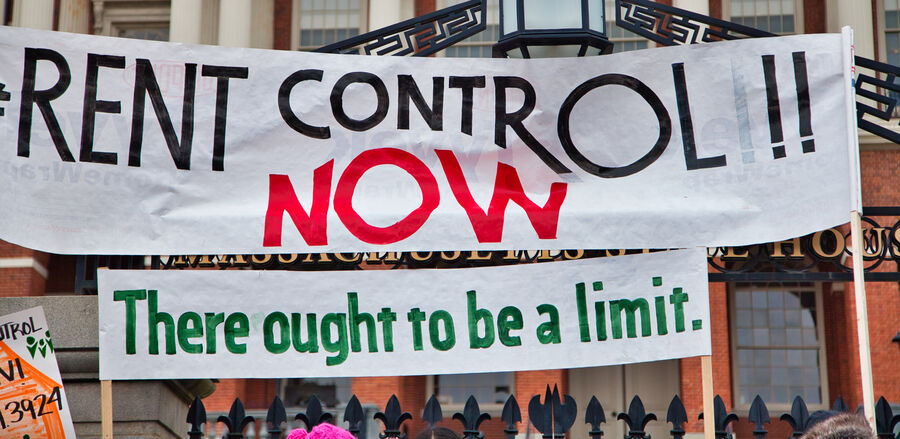Rent control laws are put in place to protect tenants from being subject to excessive rent increases and to offer affordable housing options. Knowing the states with rent control is crucial to successfully navigating the rental market, whether you’re a landlord or tenant. These laws vary from state to state; thus, take a closer look at rent control laws by state to help you stay updated on the latest info.
What Is the Rent Control Law?
Rent control laws are regulations that limit the amount of rent that landlords can charge for private, market-rate rental housing. The government enforces these laws, also known as rent stabilization, rent freeze, rent caps, or anti-price gouging policies. Regardless of their name, rent control policies require a rent cap to be imposed without any compensation or monetary investment by the governing authority.

How state rent control laws work varies across different states and local jurisdictions in the US. While some states have banned rent control, others permit local governments to establish their own policies. Some states, including California, New York, and Washington, D.C., permit rent control, with different approaches ranging from comprehensive statewide policies to localized regulations within specific cities or counties. On the other hand, 48 states do not have rent control laws.
How Do Rent Control Laws Affect Landlords & Property Owners
Rent control laws can significantly impact landlords and property owners by giving them financial challenges. The following are its effects on landlords and property owners:
- Restrictions: The states with rent control restrict the amount that landlords can increase rent for tenants, even if their expenses escalate.
- Property improvements: Obtaining approval for property improvements can be burdensome, often requiring rent board approval.
- Adjustments: Landlords usually cannot adjust their rates to reflect market conditions.
- Additional fees: Rent boards often lack a comprehensive understanding of landlords’ financial realities, leading to additional fees being imposed.
- Legal advice: The legal and administrative complexities of these laws often necessitate the involvement of legal counsel, further adding to landlords’ financial burden.
- Discouragements: It can discourage new construction, exacerbate housing shortages, and impede the growth and diversification of the housing market.
How Do Rent Control Laws Affect Tenants
Rent control laws can make housing more affordable and stable for tenants, protecting them from displacement due to rising rents. However, some tenants worry that it might discourage landlords from maintaining or improving properties, potentially leading to declining housing quality over time. Additionally, although rent control can make certain apartments more affordable, it can also lead to a tighter housing market, making it harder for new tenants to find rent-controlled units.

Rent Control Laws by State
To determine which states have rent control laws, along with comprehensive details of these laws, refer to our list and rent control states map below:
- Alabama
- Alaska
- Arizona
- Arkansas
- Colorado
- Delaware
- Florida
- Georgia
- Hawaii
- Idaho
- Illinois
- Indiana
- Iowa
- Kansas
- Kentucky
- Louisiana
- Maryland
- Massachusetts
- Michigan
- Mississippi
- Missouri
- Montana
- New Hampshire
- New Mexico
- North Carolina
- North Dakota
- Ohio
- Oklahoma
- South Carolina
- South Dakota
- Tennessee
- Texas
- Utah
- Virginia
- Washington
- Wisconsin
States with STATE & CITY rent control
- California
- Oregon
States with CITY/COUNTY rent control only
- Connecticut
- Maine
- New York
States with STATE rent control only
- Washington, D.C.
States WITHOUT statewide rent control but DOESN’T PROHIBIT it
- Minnesota
- Nebraska
- Nevada
- New Jersey
- Pennsylvania
- Rhode Island
- Vermont
- West Virginia
- Wyoming
Rent Control Laws by State
Pros & Cons of Rent Control Laws
Rent control has advantages and disadvantages. Here are some key pros and cons of rent control policies:
| PROS | CONS |
|---|---|
| Affordability: Rent control can help keep housing affordable for low- and middle-income families by preventing rapid rent price increases | Housing shortage: Rent control can discourage new housing construction and reduce the supply of rental housing, potentially exacerbating housing shortages. |
| Stability: Tenants benefit from stable housing costs, allowing them to plan their finances better and remain in their homes without fearing sudden rent hikes | Deterioration of housing stock: Under rent control, landlords may have less incentive to maintain or improve their properties, leading to the deterioration of rental units. |
| Community preservation: Rent control can help maintain socioeconomic diversity and prevent the displacement of long-term residents in gentrifying neighborhoods. | Allocation inefficiencies: Rent control may lead to misallocation of housing, with some tenants occupying units larger than they need while others face difficulties finding suitable housing. |
Bottom Line
Understanding rent control laws by state is crucial for both landlords and tenants. These laws have enabled people to find affordable housing and safeguard renters from unreasonable rent hikes. While the regulations vary from state to state, staying updated on the latest information is important to navigate the rental market successfully. By being aware of the specific rules in your area, you can ensure that you’re following the law and making informed decisions as a landlord or tenant.